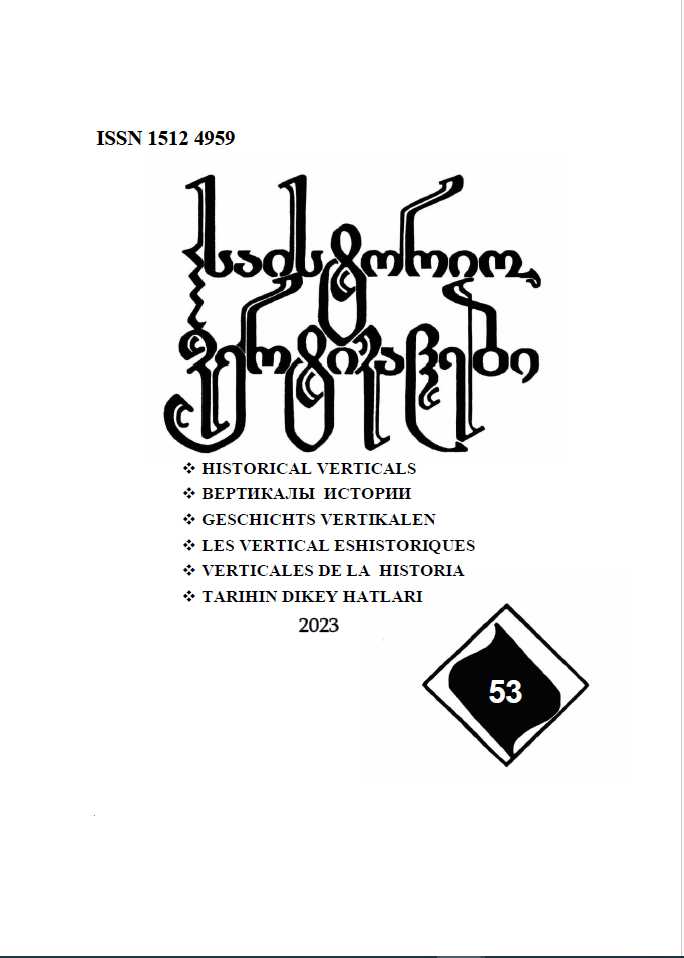NECESSITY OF BALANCING POLICY IN THE CASE OF BEING A BUFFER STATE
Main Article Content
Abstract
After the collapse of the Soviet Union, the post-Soviet countries, which were previously united around Russia, got a historic chance for political independence. Their leadership gained full power for the construction of their own state, for the sovereign development of both domestic and foreign policy. One of the main internal tasks of these countries (still relevant today) was the search for national identity, which should have united the population around the idea of independence. When these countries took the road to open market economy and democracy, another challenge to create a stable sovereign state was the search for ways of efficient socio-economic development.
The need for self-identification in foreign policy raised the issue of regional positioning - and, like other post-Soviet countries, Georgia stood between the economically strong and growing political influence of Russia (the legal successor of the Soviet Union) and other regional centers (the USA, the European Union, Turkey, China...), which also tried to gain a foothold and establish their own place in the region. In such a situation, the elements of instability, opportunism and lack of strategic planning appeared more and more in the regional politics of the post-Soviet countries. Therefore, these countries still have to make a choice between the policies of balancing and accession.
We believe that balancing and accession are conditional and replace each other depending on the specific situation. In the foreign relations of our country, there should be used the policy of balancing between the power centers. It will not benefit Georgia to side with Russia, Turkey or the West. A state that participates on the side of one or another power center will be drawn into a conflict more easily, unlike a state that uses a foreign policy of balancing between the power centers (two or more). Hence, for us, the policy of balancing is actually equal to maintaining neutrality, which, based on our historical experience, should be the most acceptable for Georgia today.
Unfortunately, today Georgia is divided into pro-Russian and pro-Western camps. Such an attitude of society poses an additional threat to the sovereignty of the country, since joining any military or political-economic union means following the rules of that union, which may not correspondent to the interests of the country, and it turns out that the country's independence becomes partially dependent on the demands of that union. Considering these threats, Georgia should use the balancing policy and become a neutral and militarily non-aligned state, which, in our opinion, is the most optimal solution in today's reality.
